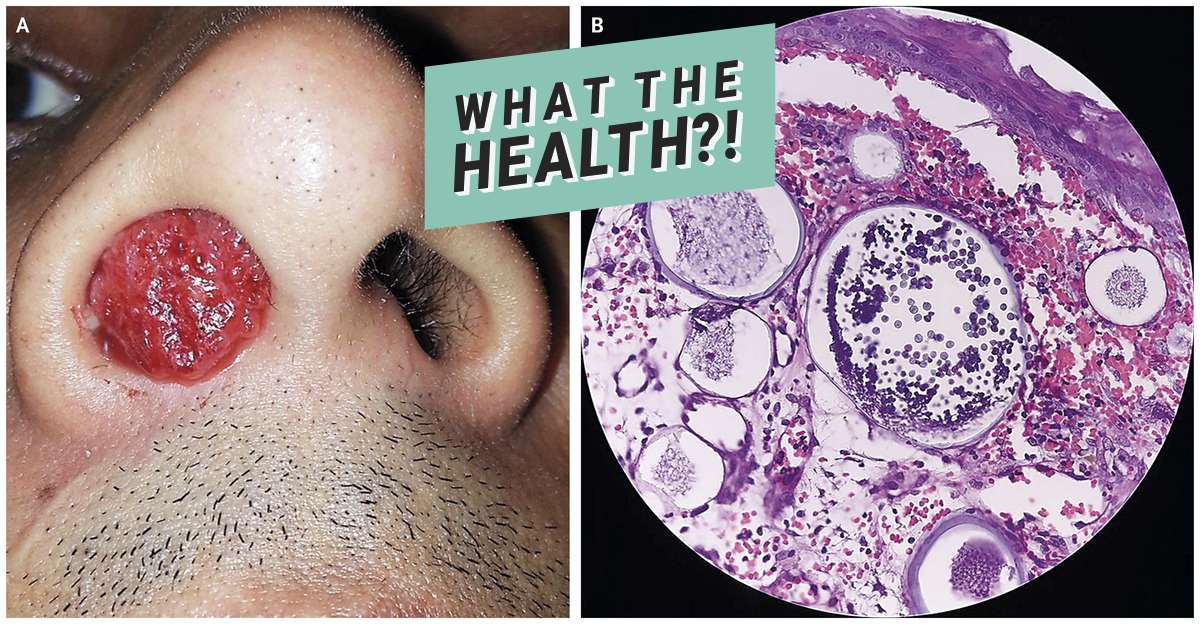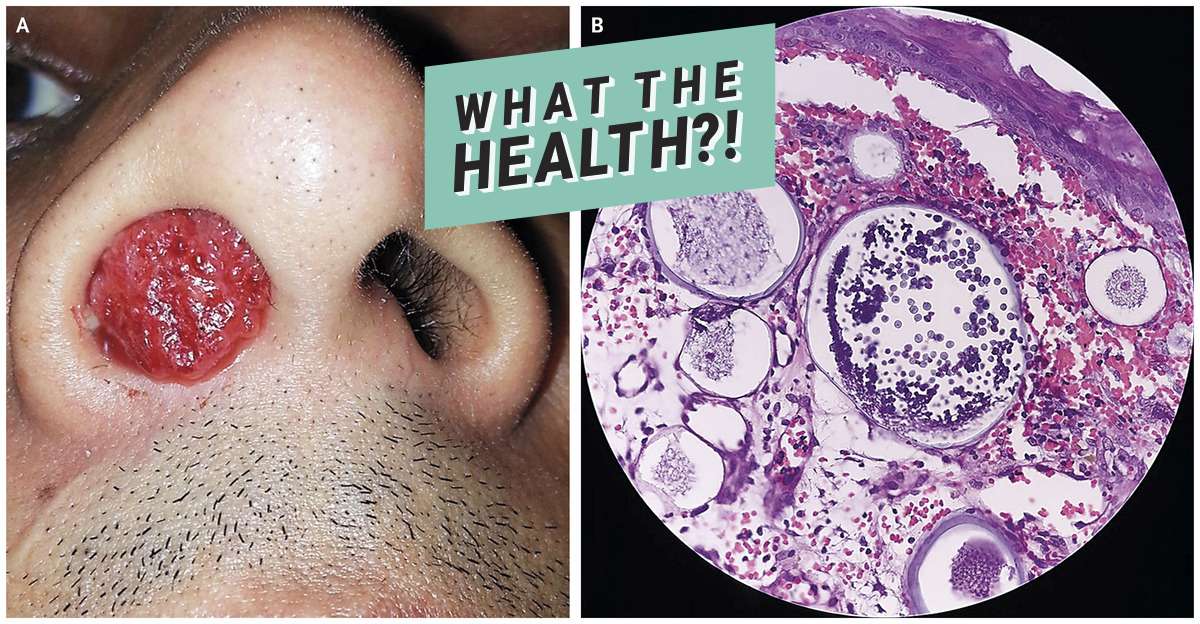A disturbing case report from the New England Journal of Medicine will make you think twice about swimming in still water. The details of a young man's case of rhinosporidiosis, a disease caused by a parasite found in water called Rhinosporidium seeberi, have given us pause. The condition resulted in an obstructive mass in the patient's right nostril that caused bleeding when touched.
So how does someone get rhinosporidiosis? You can get it by swimming in stagnant water in a pond, river, or lake. The man featured in the new case report said he had been regularly bathing in a local pond. But you can also get the disease from the air or dust. The condition is most common in India and Sri Lanka, according to the NEJMreport, but it also occurs in Africa and South America.
 fungus-swimming-pond
fungus-swimming-pond
Rhinosporidiosis is, specifically, an infection of mucous membranes, and lesions caused by the infection can manifest in the nose, throat, ears, or even on the genitals. The parasite that causes rhinosporidiosis grows sacs in a layer of connective tissue at what becomes the infected site. In the case of the man featured here, a microscopic analysis of tissue from the nostril-blocking mass led to his rhinosporidiosis diagnosis.
Patients with rhinosporidiosis should have their masses removed surgically, according to a 2011 report on the condition in Medical Mycology.& A treatment called electrocoagulation, which kills infected tissue, is also used to treat rhinosporidiosis. The patient featured in the case report had the mass in his nose removed surgically, and the spot in his nostril was cauterized, a treatment that stops blood flow and protects the site of a wound from infection.
RELATED: A Teenager Was Diagnosed With Schizophrenia—but It Turned Out to Be an Infection From His Cat
Even if you're not planning on doing much traveling this summer, you should still take caution when swimming in stagnant waters, as rhinosporidiosis has also been reported in regions other than those in which it is more common.
The Medical Mycology report says doctors need to be quick to recognize the condition. "Rhinosporidiosis is a condition which both clinicians and microbiologists should keep in mind when managing patients with nasal masses even those from non-endemic areas. It is critical in such cases to follow the clinical course to ensure against recurrence of the disease." At a follow-up appointment eight months later, the man in the case report did show signs of recurrence, and those spots were also surgically removed.
While the condition is considered rare, even in India and Sri Lanka, it can't hurt to be cautious about where you go for a dip this summer.
To get our top stories delivered to your inbox, sign up for the Healthy Living newsletter
